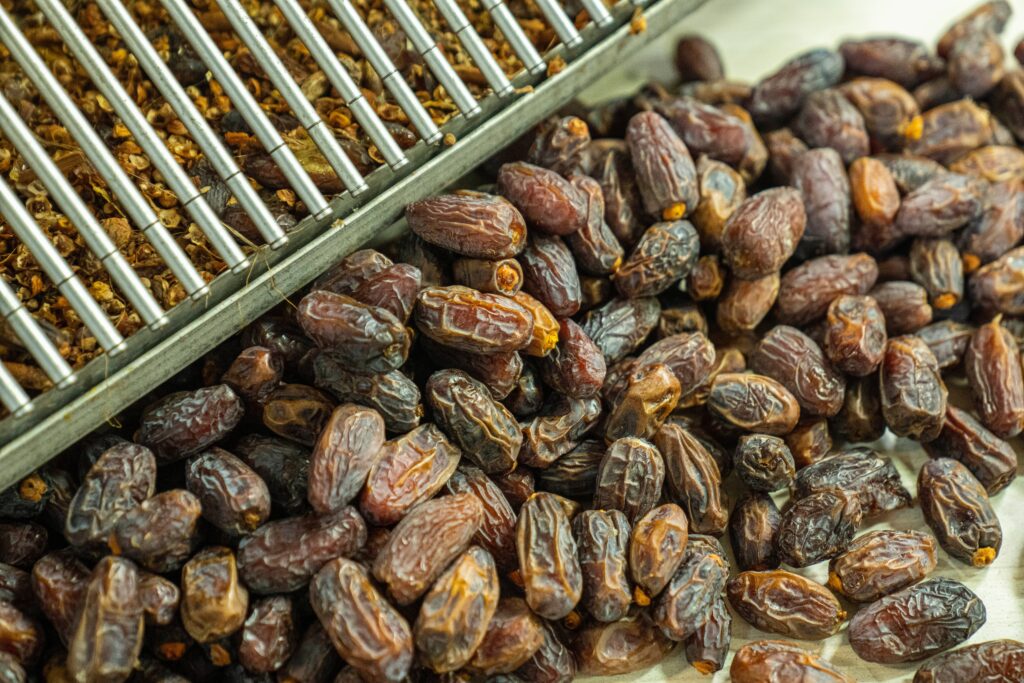
Dates have a long history, and different ancient civilizations have left behind signs of their production and consumption. The date palm tree, or Phoenix dactylifera, is said to have originated in the area that is now Iraq and the Persian Gulf. Through commerce and human migration, it gradually spread to other areas of the world. Here is a synopsis of the development of dates.
Through trading channels, dates were introduced to other continents. Date palms were widely dispersed over North Africa, the Mediterranean region, and the Iberian Peninsula thanks in large part to Phoenician commerce. The rise of Islam made it easier for date palms to reach other areas, such as sections of Europe and Asia.
Date palms were introduced to the Americas by European invaders in the 18th and 19th centuries. In areas of the American Southwest, including California and Arizona, where the climate approximated the date palm’s natural environment, date palm agriculture was successful.
Various nations in the Middle East, North Africa, South Asia, and parts of the Americas now cultivate dates. They continue to be a major source of nourishment for millions of people, who both appreciate them fresh and dried. Furthermore, dates continue to have cultural and religious significance in many civilizations and are frequently connected to festivals and festivities.
In fact, date fruits have long been consumed for their nutritional advantages and are thought to be a natural energy enhancer. They are the fruits of the Phoenix dactylifera, a date palm tree that is widely farmed around the world. Dates are regarded as a good source of energy for the following reasons:
- Carbs: Date fruits are high in carbs, especially simple sugars that the body can quickly absorb and use, such as glucose and fructose. Dates are a great food for a quick energy boost because these sugars offer a quick source of energy.
- Dietary fiber: Date fruits provide a large amount of dietary fiber in addition to simple carbohydrates. Fiber regulates blood sugar levels, preventing sharp ups and downs, offering a gradual energy release as opposed to an abrupt burst.
- Nutrients: Dates are rich in vitamins (B vitamins, vitamin K), minerals (potassium, magnesium, copper, manganese), and antioxidants (flavonoids, carotenoids), all of which are crucial nutrients. These nutrients are essential for the metabolism and synthesis of energy.

- Natural sweetness: When looking for a quick energy boost or satisfying a sweet appetite, dates might be a healthier option to processed sugars and artificial sweeteners.
- Low-fat content: Date fruits have a somewhat low fat level, making them a good source of energy without adding to an excessive consumption of fat.
Dates are a popular choice for athletes, hikers, and anybody who needs a quick energy boost because they are a simple, portable snack.
It’s crucial to Dates have a lot of calories, therefore it’s best to eat them in moderation to avoid increasing your daily calorie consumption. Furthermore, because to their high sugar content, persons who are diabetic or who are watching their blood sugar levels should be careful about eating dates.
Although dates are a fantastic natural energy booster, it’s important to keep in mind that for general health and sustained energy levels, a balanced diet that features a range of fruits, vegetables, whole grains, lean proteins, and healthy fats is necessary. Before making any dietary changes, it is always advisable to speak with a healthcare provider or a trained dietitian if you have any specific health conditions or concerns.



